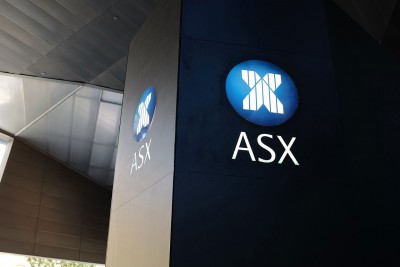Weekly market update
Written and accurate as at: May 22, 2018 Current Stats & Facts

The domestic equity market, as measured by the S&P/ASX 300 index, finished last week 45bps lower – its first weekly loss in seven weeks’ time. Beneath the somewhat muted index headline return, company specific news was the main driver for stock performance divergence over the week: on one hand, there are a handful of companies recording more than 5% gains, including Whitehaven Coal (WHC, +11.3%), JB Hi-Fi (JBH, +6.6%) and Myer (MYR, +16.9%); while on the other we saw almost an equal number of stocks post a weekly loss of more than -5%. These include some of the market darlings, such as A2 Milk (A2M, -14.1%), Treasury Wine Estate (TWE, -11.5%), as well as traditional blue chip stocks like Telstra (TLS, -11.0%).
Going into the details of the company news flow over the week, the sharp falls we saw in A2M and TWE serve as a good reminder of how even a small amount of negative news could see share prices turn rather abruptly and quickly for stocks that trade at higher valuation multiples. A2 Milk, which was trading at a P/E of almost 50x before the pullback last week, released its nine months trading update as well as the Group’s outlook for FY18 – marketing costs were higher than the market expected for the full year; in addition to some pressure on the top-line due to the planned transition to a new infant formula product line. A similar scenario unfolded at Treasury Wine Estate, where concerns were raised around the company’s future growth prospect in China, which has been a key driver of TWE’s strong stock performance. TWE has been having issues lately in getting its shipments into China, due to delays in customs clearing. The issue rests within the hands of the Chinese government, and it is highly unlikely that the company would be able to expedite the process. In addition, there are also anecdotal rumours that some of TWE’s Chinese distributors are unsatisfied with TWE’s current distribution/wholesale model in the country, where distributors are forced to stock unpopular lower-end products if they want to take on the higher-end ranges. Again, at a P/E multiple of ~40x, these issues together weighed on investor sentiment and saw the share price retreat swiftly.
CYBG (CYB, -5.8%) declined over the week on the back of its latest results release. Profit margins undershot market expectation due to some deposit products that were overpaying customers with bonus interests which had subsequently been shut down. CYBG’s share price could incur some short-term oscillations – there remain a couple of question marks around the business, including the possibility of further provision top-ups that the bank could be forced to set aside for its legacy insurance issue; as well as the proposed bid it made recently towards Virgin Money. Under the UK’s takeover regime of ‘Put up or Shut up’, the bid has to be in within a few weeks.
Elsewhere, Telstra (TLS, -10.9%) came out last week to update the market. The country’s largest telecom player now expects its FY18 EBITDA to come at the bottom end of guidance; while free cash flow is now set to finish at, if not through, the top end of guidance. The market remained wary of the increasingly competitive landscape of the industry and responded negatively to the trading update. Our investment thesis in Telstra has been that management’s guidance was conservative in terms of the business’s underlying earnings decline, and inconsistent with on our own analysis of the market dynamics and company fundamentals. Given this latest trading update, however, we are now revisiting our assumptions to gauge if the deterioration in earnings is worse than what we had anticipated. The majority of the weakness/decline has come from the mobile business, where Telstra a.) no longer over earns from overseas roaming data usage and b.) earns less from domestic out-of-bundle data charges due to more data allowance provided as users renew their mobile contract. This combination has resulted in a continuous decline in the Average Revenue per User (APRU). Despite a healthy profit margin of ~40% that Telstra has been able to maintain to date for its mobile business, the environment has been becoming more challenging with new players like TPG entering into the market. We are cautious that Telstra might start to become more aggressive in mobile contract pricing to ramp up the competition, which could erode its short-term profits before leading to a long-term market share gain. This will have to be accompanied by a cost-out program.
Turning to the country’s largest commercial bank, Commonwealth Bank (CBA, 0.0%), the latest departure (its CFO) sees an increasingly large number of key positions with empty seats, including the Head of Retail Banking, the Head of IT and the Head of HR (departure impending). The board’s original proposition to preserve stability within the organisation by promoting from within for the CEO seat hasn’t played out at the level down in the executive ranks. Understandably this has led to the market’s increasing sceptism – and concern.
Finally on a brighter note, CSL (CSL, +4.1%) upgraded its profit guidance during the week. A combination of strong demand from its key product suite, including IDELVION, HAEGARDA as well as the quadrivalent influenza vaccine continue to help support business earnings growth.










